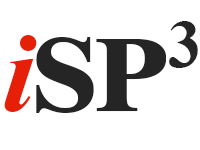Last Updated
June 8, 2021

Written By
Alana Johnson
Back in 2016, Paul St. Germain, a wholesale distribution subject matter expert, wrote an article for the National Association of Wholesale Distribution that noted how the wholesale distribution industry was at a watershed moment. He said, “Technological advances are creating massive upheavals, with industries converging, new forms of competition surfacing, and new business models emerging as never before.”
It's hard to pinpoint in this technological landscape where there are dividing moments when the technology that runs our world evolves so quickly. Five years ago, it would have been seen as one of those moments with advances such as a new device introduced known as Google Home to compete with the Echo and even the first drone delivery from Amazon. If you were in wholesale distribution, you had to be thinking about exploring the latest technology and what would keep your business top of mind for years to come.
While it’s good that technology continues to evolve, with the recent events of the past year, it’s important now more than ever that we ensure our technology adapts. The global pandemic has shed light on how quick the supply chain can be disrupted and how customer needs won’t wait. Where I live isn’t very large, but the local stores still ran out of toilet paper. Adding on to this, in March 2021, a giant container ship blocked the Suez Canal for nearly a week, making us question the stability of the global supply chain. These interruptions further remind us that we can no longer rely on the “business as usual” approach and processes.
In a recent presentation, Nextworld, the no-code Enterprise Resource Platform, discussed how once again, Wholesale Distribution is at a watershed moment. They explored the emerging trends in the industry such as the new customer buying behaviour, how the lines between B2B and B2C are becoming blurred, the complexities that have emerged in the supply chain, and the prevalence of disintermediation. It’s been found that 75% of B2B companies are buying online and they prefer to buy online after self-educating regarding products and services.
As we move forward, companies will need to change the meaning of wholesale distribution as it expands to deliver value-added, customer-specific solutions that transform and differentiate them and their customers. One way to make sure your business is supported so that you can add value to your customers is to consider a platform-first approach to ERP, with a true SaaS product.
Did you know that 91% of companies with no/low code platforms use them to promote innovation?
With Nextworld no-code ERP, your business is future-proofed because the applications built on Nextbot are separate from the platform that delivers your technology. When new technologies emerge, Nextbot embraces them for you. The separation of applications from technology puts control in your hands. You can enjoy the peace of mind that comes with zero downtime updates meaning you pass on zero cost or disruption to customers, business users, and partners. Customizations are merged with each upgrade; you will never get left behind with outdated software or the expense of maintaining customizations. One of the best parts to all this, your business users can build and change applications on their own. This language agnostic platform has open, standards based, REST endpoints (APIs) used for both integrations and Nextworld’s own user interface. The result of this is consistently enforced authorization, data integrity, and quality.
If your current ERP solution doesn't support digital transformation or can't easily adapt to changes, how capable will you be competing in this transforming industry? What side will you be left on with this watershed moment?
To learn more about Nextworld, check out this webinar where Konrad Rogers, COO of Nextworld, shares the value you gain from exploring their platform that redefines the traditional meaning of ERP.
